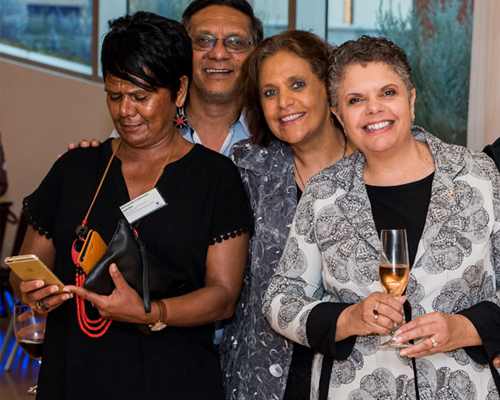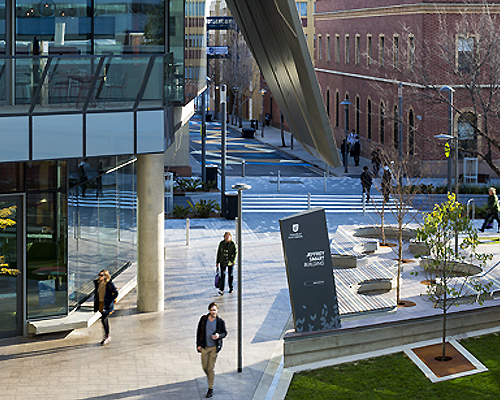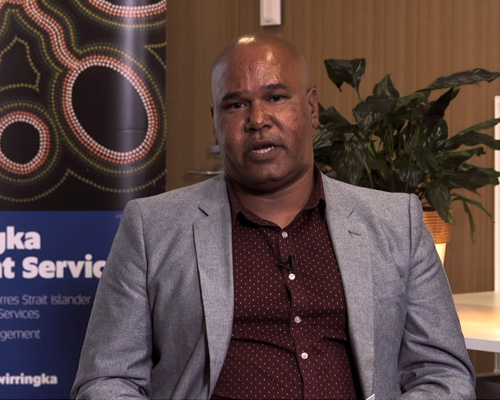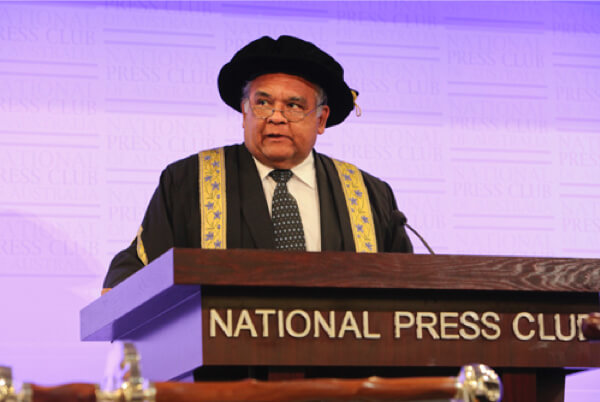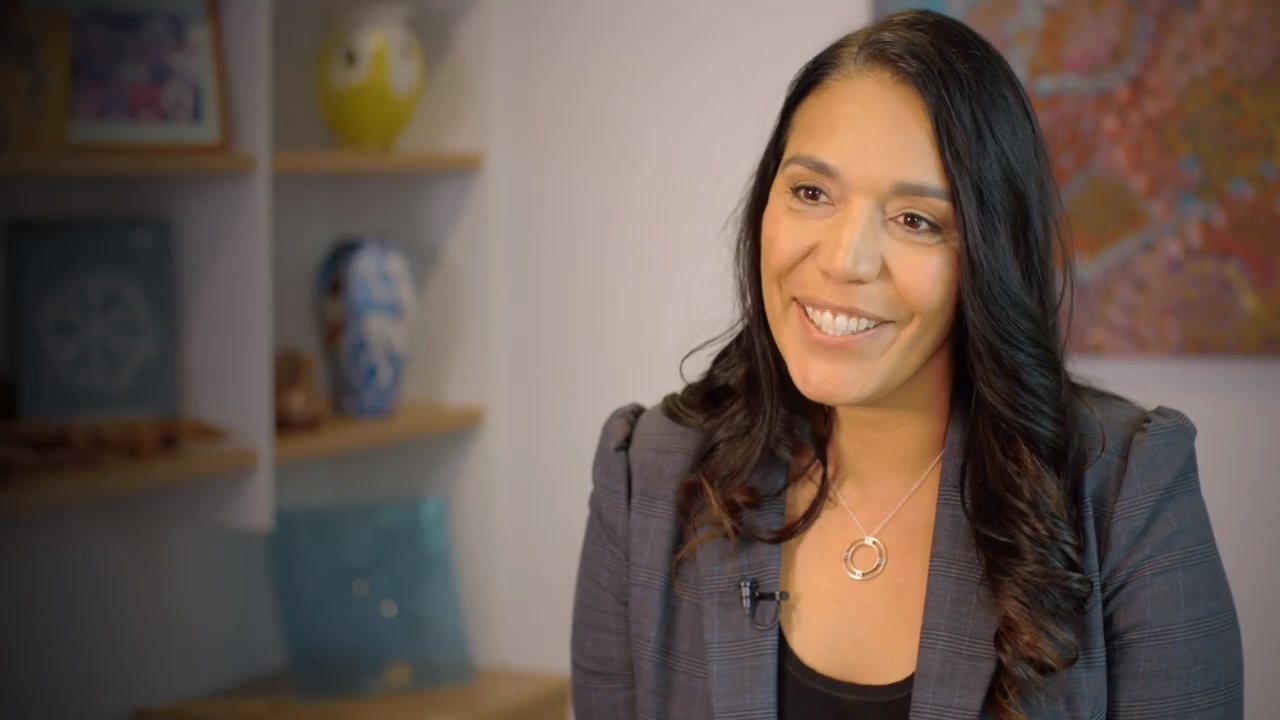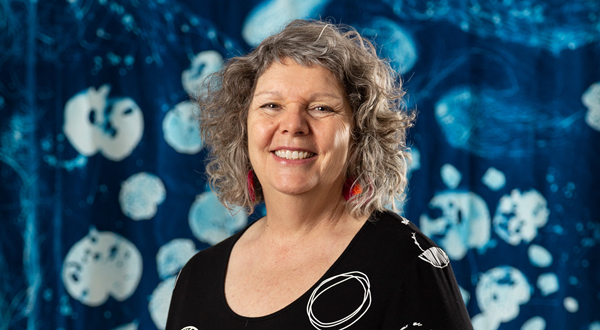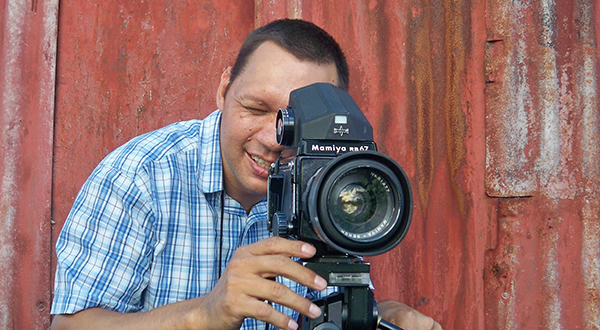Connect with others
Keep your contact details up to date to receive news of opportunities to connect with Aboriginal students, graduates, and community leaders.
Benefits and Services
Enjoy the benefits of being part of the alumni network including free library membership for graduates to borrow books and access select online databases, email for life, career services, and more...
Career pathways
Find out about the UniSA Aboriginal Graduate Program. Also keep an eye out on the Deadly Facebook Page and your email-inbox throughout the year for other job opportunities.
People who identify as Aboriginal or Torres Strait Islander are advised that this webpage may contain images and/or names of people who have died. Seeing images and/or name of someone who’s died may be upsetting or distressing in some Aboriginal and Torres Strait Islander communities, and in some situations, offend against strongly held cultural prohibitions.
Stretch Reconciliation Action Plan 2023–2025
Reconciliation at the University of South Australia (UniSA) means ensuring an environment where two-way knowledge sharing, and respect for our collective histories and cultures, are common practice in our learning journey.
Meet the Deadly Alumni Champions
The Deadly Alumni was founded in 2014 for Aboriginal graduates and students, and as part of the University’s commitment to becoming the Aboriginal people's university of choice. You can read the stories of the Deadly Alumni Champions below and if you’d like to share your own story, we’d love to hear from you.
You can contact us at alumni@unisa.edu.au
Patron
Professor Tom Calma AO
We are honored to have Professor Tom Calma AO as the Deadly Alumni Patron. Professor Calma has been awarded three honorary doctorates in recognition of his contribution to Aboriginal affairs at a community, state, national and international level and is an Alumnus of the University of South Australia. Read more....
Champions
We are delighted to have Janine Mohamed and Klynton Wanganeen as Deadly Alumni Champions. Their significant contributions to the community are well recognised and are of great importance to the Aboriginal Alumnus of the University of South Australia.
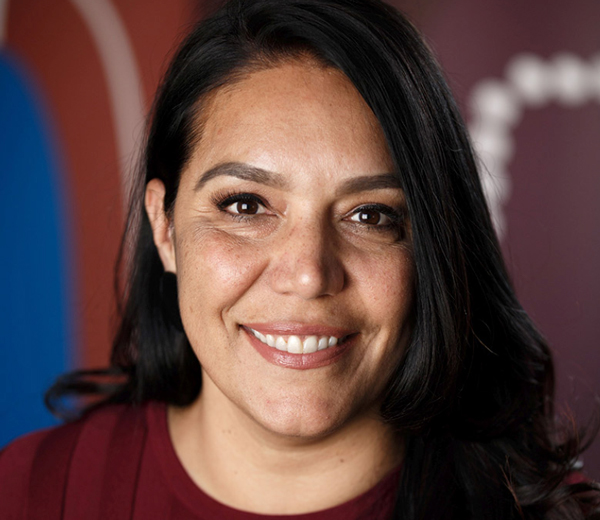
Janine Mohamed
Janine Mohamed is a proud Narrunga Kaurna woman from South Australia. Over the past 20 years, she has worked in nursing, management, project management, and workforce and health policy in the Aboriginal and Torres Strait Islander health sector. Read more....
Klynton Wanganeen
Klynton Wanganeen is a descendant of the Narungga and Ngarrindjeri nations with also Adnyamathanha and Ngadjuri heritage. Many of you will know him as the former South Australian Zone Commissioner for Aboriginal and Torres Strait Islander. Read more....
Deadly Alumni stories
Nici Cumpston OAM
Nici Cumpston OAM, Artistic Director Tarnanthi, Curator of Aboriginal and Torres Strait Islander Art featuring Quandamooka djagan marumba (Quandamooka country is beautiful) by Sonja and Elisa Jane Carmichael, Tarnanthi 2020: Open Hands, Art Gallery of South Australia, photo: Saul Steed. More...
Darren Siwes
Artist Darren Siwes’s birth in 1968 to a Dutch immigrant father and an Ngalkbun Aboriginal mother, catapulted him into a time of great political upheaval and social change in the late sixties. More...
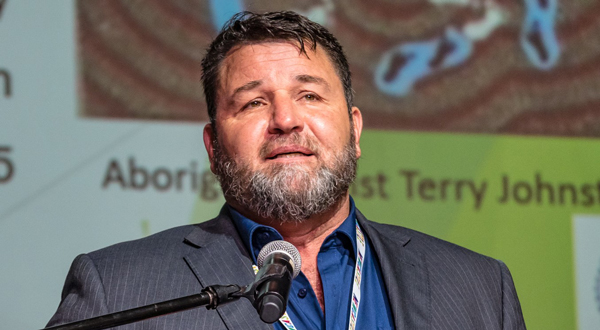
James Charles
James Charles is a proud Kaurna man who left school at just 14, but he knew deep inside that he wasn’t done with education for good.However, even he probably wouldn’t have predicted he would return to earn a PhD, launch a successful career as a podiatrist and academic, and be acknowledged for making a real difference to Aboriginal health in Australia. More...
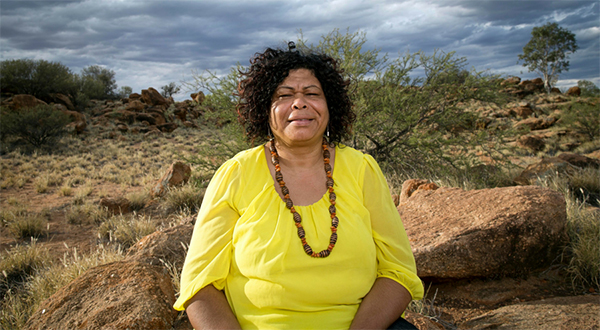
Andrea Mason OAM
Andrea a former CEO of the Ngaanyatjarra Pitjantjatjara Yankunytjatjara (NPY) Women’s Council and now Commissioner made her way from Kalgoorlie to Alice Springs via Adelaide and Canberra (each more than once) on a journey that has involved a netball scholarship, politics, two university degrees, an honorary doctorate, a secondment in Westpac and stints as a public servant. More...
The banner artwork at the top of this page, was designed by Deadly alumnus Jordan Lovegrove, a Ngarrinjeri man from the South Australian coast. Jordan is a talented local artist and illustrator. It’s abstract, colourful and modern, using a mix of traditional and non-traditional colours and imagery. The concentric lines represent the sharing of wisdom via ‘Sand Stories’. The central red track represents the different paths of the student journey. The dotted lines with arrow-like figures are Kangaroo tracks, representing the insight gained through the Alumni support. The use of blue recognises the Torres Strait Islander people and their flag.
UniSA acknowledges that we respect the Kaurna, Bungarla and Boandik peoples spiritual relationship with their country. We recognise and respect their cultural heritage, beliefs and relationship with the land. We acknowledge that they are of continuing importance to those people living today. We acknowledge the diversity of Aboriginal peoples, past and present.




